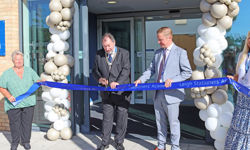As reported by the Newspaper Society: “I don’t think it’s any secret, and I’m sure that my Secretary of State has put it on record, that we are delighted with the progress that the press has made in this area,” Mr Vaizey told MPs in a Westminster Hall debate on press regulation.
“It is an important point to stress that the independent self regulation body that is currently being set up by the press is very welcome. It is also important to stress that it is entirely a matter for the press whether they chose to seek recognition for that body,” Mr Vaizey said.
In the debate, led by MP for South Dorset Richard Drax, MPs attacked the politicians’ Royal Charter saying it amounted to state licensing of the press and would lead to taxpayers’ money being wasted.
Mr Drax said: “For all its faults I am proud and fortunate to live in a country with a free and often irreverent press. It is a beacon of hope across the globe which is why I was genuinely surprised when 530 honourable members of this House dared to cross a threshold not crossed for 300 years back in March.”
“Free speech organisations around the world are asking us to rethink. They fear these changes set a dangerous precedent for non democratic regimes. Our Foreign Secretary William Hague agrees.”
“So why are we going down this road? True democracies erect a barrier between the Government and the press for lots of good reasons and there is no excuse to dismantle it.
“Let’s not forget what spawned the Leveson Inquiry; phone hacking, that is already a criminal offence,” Mr Drax said. “Those in favour of a Royal Charter say it will not impinge on a free press. I would disagree.”
Richard Bacon, MP for South Norfolk, said: “It is a fact that what the Government is proposing is state licensing, I think the honourable member made that very clear - a legal underpinning by statute.”
“The conversation about what should and shouldn’t be in the public domain is obviously a permanent one and the idea that Government itself should be the arbiter of that is wrong.”
Jacob Rees-Mogg, MP for North East Somerset, asked Mr Drax if he could “recall any occasion since the late Stuart period when the Stuart kings were trying to establish an absolute monarchy that a Royal Charter has been used for extending the power of the state?”
Philip Davies, MP for Shipley, said: “Would my honourable friend agree that not a penny of taxpayers money should be used on setting up a recognition panel which the Secretary of State herself accepts could be entirely redundant?
“And that it would be much better instead to allow the establishment of the Independent Press Standards organisation which will be up and running in early 2014 and will avoid having this statutory control of the press?”
Speaking about IPSO, Mr Drax said most newspaper editors were willing to sign up to the system which is “tough and independent of both politicians and the press.” He added: “Far from bring toothless, these regulations will bring swift and fair redress to those who have been badly treated.
“Lord Leveson called for system that all sides could agree to - all sides, please note that word. Self evidently, the Royal charter fails in this regard and it seems that the Government has seen this for itself.
“The Minister Mrs Miller was reported to have said last month that, I quote, 'the press charter could be redundant' if newspapers produce an effective system of self regulation – they have, it’s right here,” Mr Drax said, holding up the Ipso documents.
Christopher Chope, MP for Christchurch, asked Mr Drax if he was aware “of any other system of press self regulation anywhere else in the world which is as stringent as what is proposed here?”










